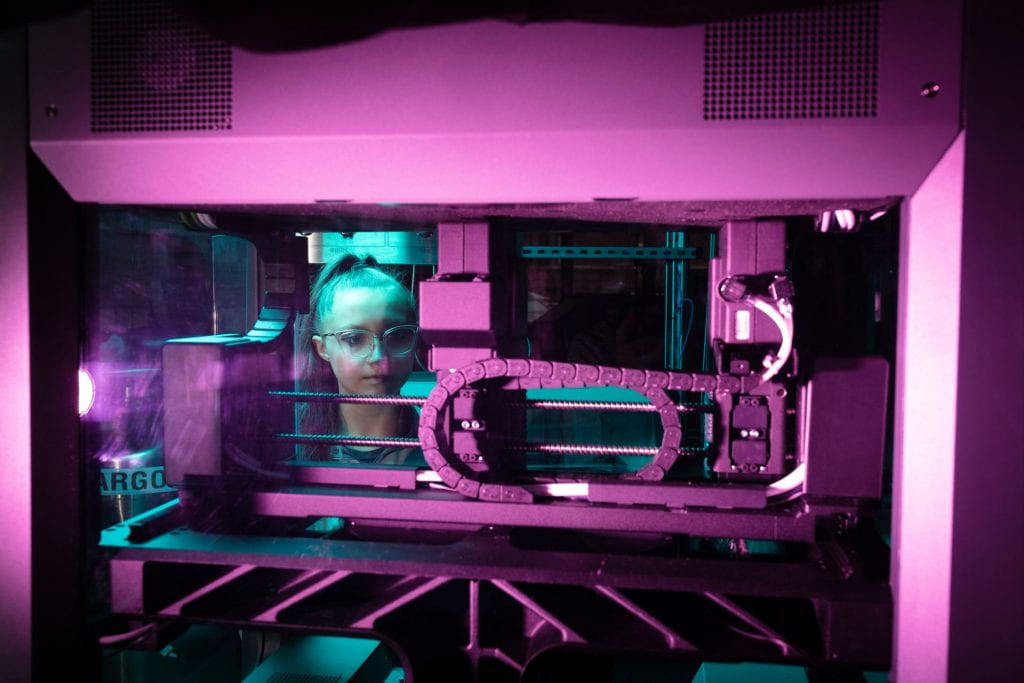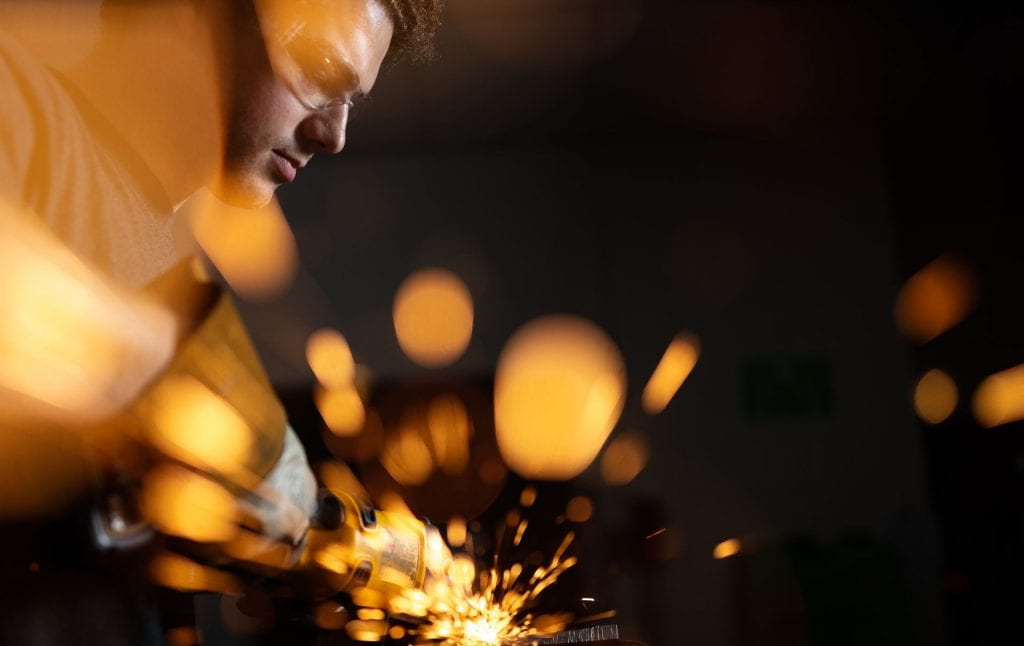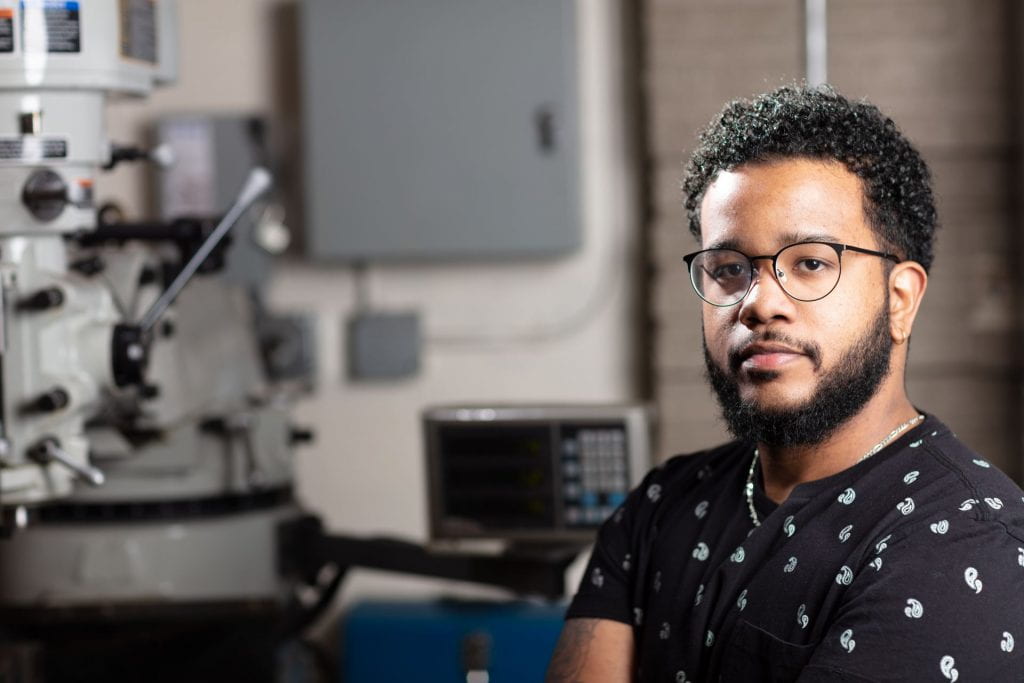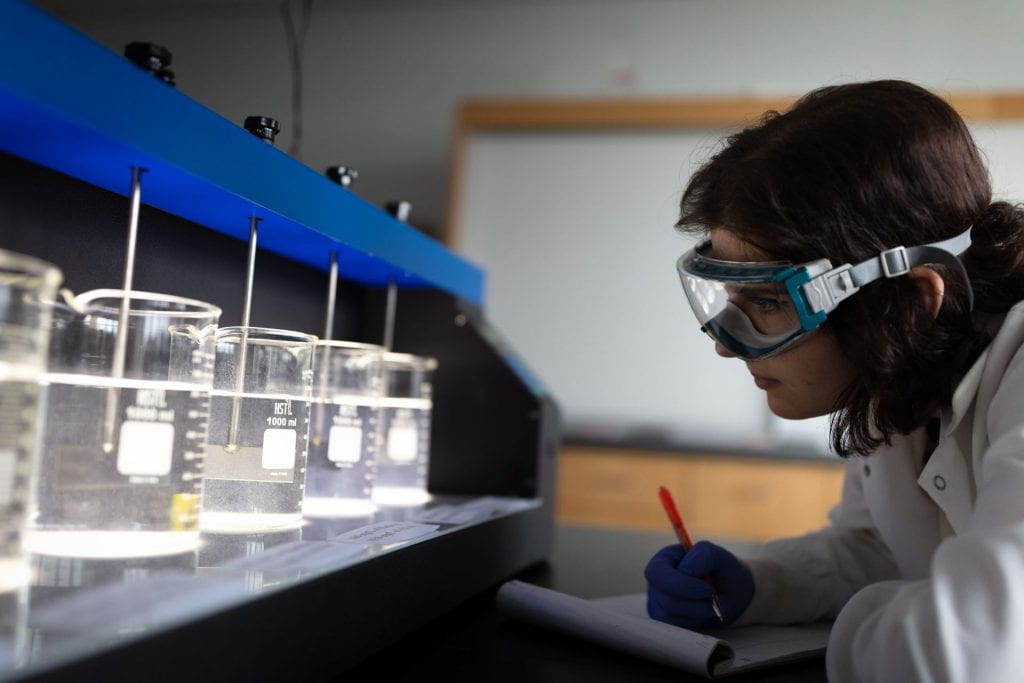“The pandemic has changed everything. Having a formidable strategic plan is more important than ever,” says Wentworth Board of Trustees Chair Greg Janey, ARS ’82, BCM ’04, Hon. ’17.
Institutions across the world are rethinking how they educate students in the wake of the COVID-19 outbreak. Many schools have had to scramble to reconfigure their short-term plans, some facing economic peril if things are not drastically changed. Others already envisioned a day where business as usual could be upended, a time when a sweeping reform plan would be made necessary. Civil unrest and increased calls for an end to systemic racism have also helped evolve social priorities for many students.
“We started building Wentworth’s strategic plan long ago,” says President Mark Thompson. “Obviously, a global pandemic was not something we had planned for, but the strategic plan did take into account unforeseen events, and it’s confident in its approach to the future of higher education and what needs to be done to stay at the forefront of learning.”
Janey, a member of the Strategic Plan Steering Committee adds, “The things we consider in this plan allow Wentworth to offer a dynamic learning environment, one that allows us to be agile and strong even during the most challenging of times.”
Wentworth’s plan began to take shape under Thompson in 2018 and will be formerly presented to the Board of Trustees this fall. But getting there took the efforts of four dedicated committees, each comprising diverse collections of faculty, students, staff members and alumni. We asked a few to tell us how they contributed to their areas and what values were important to them.

INCLUSIVE EXCELLENCE
By Drew Coutts, Mechanical Engineering ’21
Wentworth is known for fostering innovation and problem solving. In our engineering classes, we’re taught that collaboration and considering different points of view will create the best solutions, because we all offer unique strengths. However, if entire groups of our community aren’t being heard, how could Wentworth expect to innovate at the highest possible level?
When I heard President Thompson was including Inclusive Excellence as one of his four strategic planning points, I was ecstatic. Emphasis on Inclusive Excellence is vital to Wentworth’s advancement as a university, because it allows every member of our community to have a voice.
In early meetings with President Thompson, he asked to hear everything we had to say, even the ugly truths. Well, the community delivered. Many people expressed that they felt pushed aside because of their identity or ability. It was incredible to be a part of such a diverse group of community members who came together to assist those who felt left behind. These discussions were not always easy. We were
made aware of many physical barriers and bias-fueled challenges that we may not personally face, but others at Wentworth do. These were peers who needed serious changes to thrive, and it was up to us to outline these changes.
I was honored to be part of this shift in our school’s culture. With President Thompson’s famous “optimistic urgency” mantra, it is our duty as designers, engineers, technicians and entrepreneurs to act now for a better tomorrow.
***
By Lizzie Falvey, Associate Professor, College of Arts and Sciences, and Alex Cabal, Director, Center for Diversity and Social Justice Programs
The changing demographics of the United States mean that higher education must reflect the needs of every student in order to create equitable and just communities. Becoming the “University of Now” requires us to reflect upon how to best support a diverse body of students, faculty and staff.
Our subcommittee examined all areas of university life to assess how we can ensure that every member of our community will continue to feel seen and heard. Represented by passionate members of the faculty, administration and student body, the Inclusive Excellence subcommittee brought a unique perspective to the table.
For both of us, it was important to bring to light concerns and issues that affect persons of colors and women, because these are two populations to which we feel individually committed. Managing the Center for Diversity and Social Justice Programs (Cabal) and co-chairing the Women’s Caucus (Falvey) give us the platforms to hold spaces where conversations around equity and justice happen openly. We also have the ability to amplify the voices of those who need to be heard.
As a result of the work of the committee, the university has already adopted two significant initiatives: First, a search committee is already working toward hiring of a new vice president for diversity, equity and inclusion. Second, the implementation of a campuswide diversity and equity campus climate survey is underway. The survey will provide us with information on our strengths and our areas for improvement. The results will also be used as a tool to strengthen current programs while creating new policies, initiatives and practices that will ensure that Wentworth ultimately achieves Inclusive Excellence.
Wentworth’s clear directive toward inclusive excellence will allow us to grow as an institution so that every community member feels supported, included and welcomed. We are both proud and grateful to have had the opportunity to help direct our future.

HIGH-VALUE LEARNING
By Joe Martel-Foley, Assistant Professor, Department of Biomedical Engineering, and Durga Suresh, Special Assistant to the Provost for Graduate Programs
Our working group was composed of members from all over campus, many of whom had not previously worked together. This broad representation and set of diverse viewpoints were key in the idea generation and development of sound strategy. What inspired us the most about this group was that each person brought a passion for teaching and learning, a passion for the success of our students and Wentworth pride.
High-value learning can set Wentworth apart: building on our existing strengths and exploring learning in new ways, ensuring the learning is personalized, making sure that everyone can find a path to success.
What makes high-value learning so important is that it is intertwined with all of the pillars of the strategic plan. Stronger connections with partners are key for the relevance of learning and keep students in the now.
Finally, if we get all of these items right, a learner can be transformed through their Wentworth education. A focus on creating personalized learning that is relevant and exploring ways of improving the value of education through more immersive practice will not only transform out students but Wentworth as a whole.

TRANSFORMATIVE STUDENT EXPERIENCE
By Aaron Carpenter, Assistant Professor, Department of Electrical and Computer Engineering, and Carlie Biron, Architecture ’11, Master of Architecture ’12, President of Wentworth Alumni Association
When our group first met, one thing was immediately clear: We were all passionate about the task at hand. Without students, there is no Wentworth. And without happy, safe, healthy students, we can’t be a happy, safe and healthy community.
One of our early guiding principles was to make Wentworth feel like home, whether you are on campus or off campus, part-time or full-time. For Wentworth, “home” means whatever the student needs to succeed and be comfortable: leisure time to explore new opportunities in and out of the classroom, healthy food, exercise opportunities, mental-health resources and/or providing all academic supplies and reducing financial overhead.
And of course, it means eliminating obstacles wherever possible. This enables a path for students to receive the best possible education and experience and make their college life their own.
With the directive from President Thompson to think outside the box and imagine how we could improve the student experience if there were no restrictions placed on our thinking, we hit the ground running. Our initiatives ranged in scope and scale, but all were centered around a student’s overall well-being and providing strong and intentional resources. For a long time, the mentality of academia has been “this is how it has always been done.” Students had to follow a strict path from enrollment to graduation. Wentworth has students who are varied in their background and their interest, and the “University of Now” will ensure that every student is treated individually to ensure that they get the experience that is best for them, providing resources, mentorship, guidance and time.
As Wentworth adapts and evolves, we are aware that the students must be a cornerstone of our foundation. The strategic planning process put the student experience at the forefront, and we are excited to see the proposed initiatives turned into reality.

NEXT-GENERATION PARTNERSHIPS
By Joe Schnackertz, Business Management ’21
Being asked to play a role in the strategic planning process was a significant honor. Most students view college as a place where you go and fit into the existing structure like a cog in a machine. Here, I had the chance to contribute to a group of highly motivated, intelligent and student-orientated people.
The goal of our team was to develop a vision, direction and action steps for the future of Wentworth’s collaboration with community members. The process was exciting, starting off by getting to know all the contributors in the room and what expertise and lenses they brought with them. I was impressed by how diverse the team was in this manner. Everyone had a different way of looking at Wentworth’s internal and external environments.
We tackled an important aspect of partnerships at each meeting, identifying who they are or could be, how to connect with them and how to facilitate their creation. My favorite part of this experience, though, was the way our team worked together. Every member had a voice and was encouraged to speak up and contribute. That can be hard to do when 14 people are gathered in a conference room.
I was especially appreciative of the way that the team included me. As a student, I was not sure, at first, how much I could contribute, because I did not know the ins and outs of Wentworth’s operation. Even so, the group relied on me for a student’s perspective: What did the students want from the university’s partnerships? By the end of the planning process, I felt I had not only made a significant contribution
to the future of Wentworth, but also forged solid connections with those whom I worked with.

